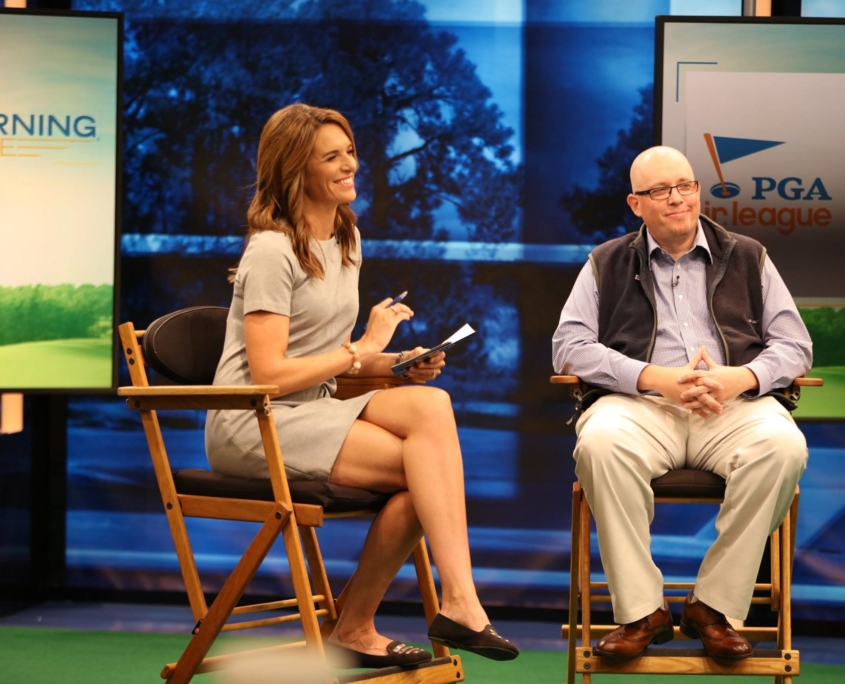Here’s what we cover:
Elements of this post originally come from Brendon Elliott’s 8-Part Series, “A Parents Guide” found on PGA.com throughout October of 2021.
Every so often I hear chatter among parents of junior golfers that gives me great concern. Many times, the things I hear come from parents who are just getting their kiddos going in the game. Other times, it comes from parents of more seasoned junior golfers, which is even more concerning to me.
My concern comes from statements such as…
“They are getting very little individual attention in this PGA Junior League program.”
“I know it’s a group program, but why isn’t my child getting more one-on-one time?”
“They play an awful lot of games and there is a lot of laughing…maybe this isn’t serious enough for my child.”
Today, I would like to offer up some thoughts to all parents of junior golfers in hopes to enhance both your understanding of youth player development, and more importantly, your child’s own journey through the game.
Golf is an amazing game and one that I encourage all parents to have their kids try. There is so much that kids can learn from the game that go well beyond hitting a little white ball.
Golf is also an amazingly difficult game and one that requires time and patience in order for your child to keep progressing along their golf journey. It takes a lifetime of learning and experiences to become proficient at golf. But with that said, it is incredibly important to not lose site of two things…
- There is no perfection in golf…the just does not exist
- Golf should always be about fun, especially for kids, and no matter how good someone gets
When parents question the purpose of programs like PGA Junior League, or other group programming, and make comments about it not being “serious enough” or not having enough “individualized” instruction, I say this…”Precisely! Because its not supposed to!”
Most group programs, especially for younger ages, should be about creating a basic knowledge base and a love for the game. While children get older, or more proficient in their skills, you are still largely trying to work on basic concepts and continue to instill a passion for the sport. There are indeed many special clinics out there designed for more advanced players, but those too will include elements of basics and fun.
I know full well what the original intention was for PGA Junior League and what it was meant to be all about…I was on the PGA’s National Youth & Family Golf Committee when PGA Junior League first came into being years ago…I was in the board room discussing it prior to its launch. It was meant to be social and a fun way to introduce kids to the game. For better players, it was intended to be a more relaxed way of providing competition where they would have the opportunity to mentor younger or newer golfers. That aspect, for better players, is one that will help them grow in ways that you would never otherwise find in golf. Mentoring and helping others essentially help’s them grow themself.
More “serious” and “individualized” instruction and coaching should come in the form of private coaching. And in my 25+ years of experience, private coaching should also include an overarching theme of fun…no matter what level player the student may be.
In addition, private coaching, in my professional opinion, should be long term and not short. Golf is a multi-faceted game which takes time to develop…there are no Band-Aids or quick fixes…well, there are, but Band-Aids fall off.
I wanted to share the following links from my 8-Part Series, “A Parents Guide” which appeared on PGA.com throughout October of 2021…If you are a new golf parent, or even a more seasoned one, you would be very well served in reading these posts…
Parent’s Guide: Part 1- Start with a Realistic Assessment of Your Child’s Game
Parent’s Guide: Part 2- Understanding the Process of Working with a PGA Coach
Parent’s Guide: Part 3- Helping Your Child Build a Plan and Set Goals
Parent’s Guide: Part 4- Being Mindful of the Mental and Emotional Side of the Game
Parent’s Guide: Part 5- Being Okay with Defeat, Failure & Bad Play
Parent’s Guide: Part 6- Golf Should Never Define Who Your Child is as a Person
Parent’s Guide: Part 7- Hard Work & Fun Should Go Hand in Hand
Parent’s Guide: Part 8- Without Trust, All Else Fails
I started my career in this game in 1996, and since about 2003, or for about the last 20 years, youth golf coaching and player development has been at my core…it’s my passion.
I’ve been blessed to have been recognized by the PGA, and the golf industry at large, as one of the leaders in the youth golf space over the past decade…this is something that I take very seriously.
With that in mind, I share this post with all parents of young golfers, both new and old, so you can have a more clear picture on how this golf journey should flow for your child. I do so with yours and your child’s best interests in mind…
If I can ever be of assistance… brendonelliott@pga.com
Enjoy your golfing journey and make sure you do all you can to help your child enjoy theirs too!
Brendon R. Elliott, PGA
2017 PGA National Youth Player Development Award Winner
Winner of 25+ Golf Industry Awards with a focus on Youth Golf & Education


